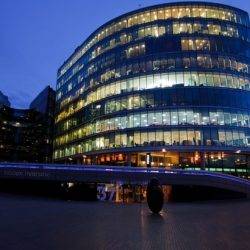May 17, 2017
UK employees three times more likely to work when ill than to pull a sickie 0
 Seven in ten UK employees – equivalent to 18 million nationally – have gone to work feeling unwell when they should have taken the day off, while less than a quarter (23 percent) say they have taken a day off work sick when they were not actually unwell, indicating that UK employees are three times more likely to go to work unwell than they are to ‘pull a sickie,’ a new report claims. The fourth edition of the Aviva Working Lives Report, which examines the attitudes and experiences of employers and employees on issues affecting the present and future of the UK workplace – also carries a wake-up call to businesses, as more than two in five (43 percent) employees feel their employer puts the results of the company ahead of their health and wellbeing as more than two in five (41 percent) say their work will pile up if they are off sick.
Seven in ten UK employees – equivalent to 18 million nationally – have gone to work feeling unwell when they should have taken the day off, while less than a quarter (23 percent) say they have taken a day off work sick when they were not actually unwell, indicating that UK employees are three times more likely to go to work unwell than they are to ‘pull a sickie,’ a new report claims. The fourth edition of the Aviva Working Lives Report, which examines the attitudes and experiences of employers and employees on issues affecting the present and future of the UK workplace – also carries a wake-up call to businesses, as more than two in five (43 percent) employees feel their employer puts the results of the company ahead of their health and wellbeing as more than two in five (41 percent) say their work will pile up if they are off sick.




















 Employees coming into work when sick are contributing to a rising trend of ‘presenteeism’ across the UK, with more than half (52 percent) of UK workers admitting to going to work when their performance is negatively affected by work-related health issues, a new survey claims. A third (34 percent) of workers have even considered moving jobs due to the negative impact of their work environment on their health – the highest percentage across Europe. The report from Fellowes, published to coincide with World Day for Safety and Health at Work, argues when a worker is present but not able to perform their function properly, it compromises their productivity. With most employees continuing to work at sub-par levels rather than taking days off to recover, this also prolongs the effect of illness. Subsequently, businesses are experiencing a detrimental knock-on impact on the quality and volume of work produced, with a further impact on overall business performance.
Employees coming into work when sick are contributing to a rising trend of ‘presenteeism’ across the UK, with more than half (52 percent) of UK workers admitting to going to work when their performance is negatively affected by work-related health issues, a new survey claims. A third (34 percent) of workers have even considered moving jobs due to the negative impact of their work environment on their health – the highest percentage across Europe. The report from Fellowes, published to coincide with World Day for Safety and Health at Work, argues when a worker is present but not able to perform their function properly, it compromises their productivity. With most employees continuing to work at sub-par levels rather than taking days off to recover, this also prolongs the effect of illness. Subsequently, businesses are experiencing a detrimental knock-on impact on the quality and volume of work produced, with a further impact on overall business performance.
 New guidance to help facilities managers manage the transition to agile working within their organisation has just been published by the British Institute of Facilities Management (BIFM). The Agile Working Change Management Guidance Note is aimed at FMs working at a senior and/or operational level and covers the benefits of agile working and how to successfully plan and implement an integrated approach to deliver sustainable change in working behaviour. Agile working describes a range of work settings that allow people and organisations to make new choices about when, where and how they work. It is underpinned by mobile technology and applies to people working both in and away from the traditional office, such as at home, on the road or remotely in other locations. BIFM’s research and information manager Peter Brogan said: “As an Institute, we recognise the importance of the workplace agenda for FMs and this newly commissioned Guidance Note aims to address the current lack of knowledge around some of the emerging workplace practices.”
New guidance to help facilities managers manage the transition to agile working within their organisation has just been published by the British Institute of Facilities Management (BIFM). The Agile Working Change Management Guidance Note is aimed at FMs working at a senior and/or operational level and covers the benefits of agile working and how to successfully plan and implement an integrated approach to deliver sustainable change in working behaviour. Agile working describes a range of work settings that allow people and organisations to make new choices about when, where and how they work. It is underpinned by mobile technology and applies to people working both in and away from the traditional office, such as at home, on the road or remotely in other locations. BIFM’s research and information manager Peter Brogan said: “As an Institute, we recognise the importance of the workplace agenda for FMs and this newly commissioned Guidance Note aims to address the current lack of knowledge around some of the emerging workplace practices.”












May 10, 2017
The new normal arrives for the commercial property sector 0
by Gary Chandler • Comment, Facilities management, Property, Workplace design
(more…)